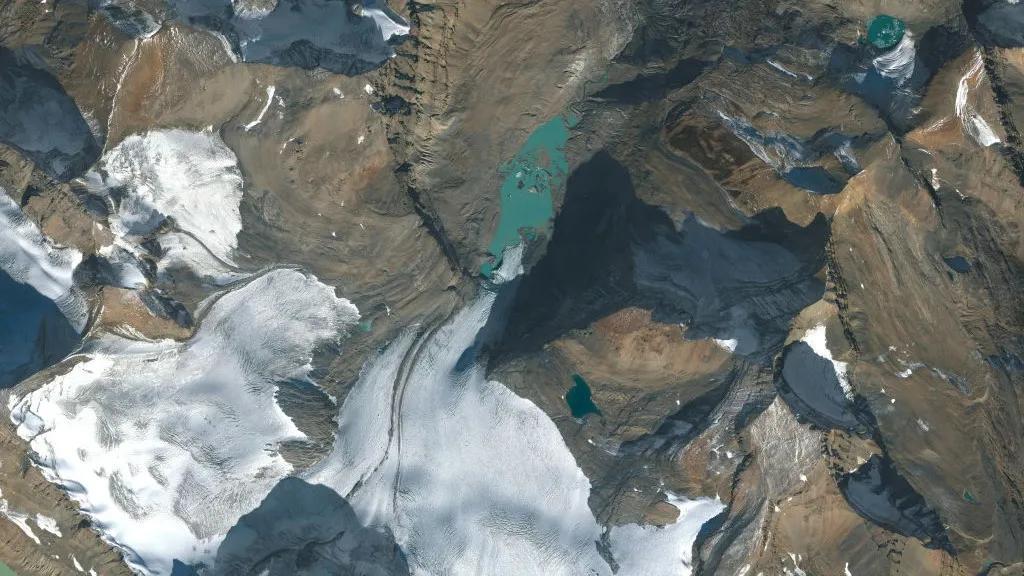
North America & Europe’s Glaciers Lost Unprecedented Ice in 4 Years: Study
The world is witnessing an unprecedented rate of glacier melting, with a new study revealing that glaciers in North America and Europe have lost an alarming amount of ice over the past four years. According to the research, glaciers in Washington, Montana, British Columbia, Alberta, and the Swiss Alps have shrunk by up to 13% between 2021 and 2024, with a staggering 24.5 billion tons of ice lost annually by US and Canadian glaciers, and 1.7 billion tons annually by Swiss Alps glaciers.
The study, published in the Journal of Geophysical Research: Atmospheres, provides a stark reminder of the devastating impact of climate change on our planet’s natural wonders. The researchers analyzed satellite data to track the changes in glacier mass between 2010 and 2024, revealing a shocking trend of rapid ice loss.
Glaciers are a vital component of the Earth’s ecosystem, playing a crucial role in regulating global temperatures, providing water sources, and supporting unique ecosystems. However, they are highly sensitive to changes in temperature and are melting at an alarming rate due to human activities, such as greenhouse gas emissions and deforestation.
The Swiss Alps, which are home to some of the most iconic glaciers in the world, have seen a significant decline in glacier mass over the past decade. The researchers found that Swiss Alps glaciers lost an average of 1.7 billion tons of ice per year between 2021 and 2024, which is more than twice the amount recorded from 2010 to 2020.
In North America, the study found that glaciers in Washington, Montana, British Columbia, and Alberta have also experienced unprecedented ice loss. The researchers reported that US and Canadian glaciers lost an average of 24.5 billion tons of ice per year between 2021 and 2024, which is more than twice the amount recorded from 2010 to 2020.
The study’s findings are a stark reminder of the urgent need for action to address climate change. Rising temperatures are melting glaciers at an unprecedented rate, with far-reaching consequences for the environment, ecosystems, and human societies.
The researchers used satellite data from the European Space Agency’s Copernicus program to track changes in glacier mass. They analyzed data from 2010 to 2024, which revealed a significant increase in glacier melting over the past four years.
The study’s lead author, Dr. Marco Tedesco, a glaciologist at Columbia University’s Lamont-Doherty Earth Observatory, stated, “We’re seeing a tremendous amount of ice loss in the Swiss Alps and North America. This is a clear indication that climate change is having a profound impact on our planet’s glaciers.”
The consequences of glacier melting are far-reaching and devastating. Rising sea levels, changes in ocean currents, and disruptions to global weather patterns are all linked to glacier melting. Moreover, the loss of glaciers also has significant economic and social implications, including the threat to global food production, water security, and human settlements.
The study’s findings are a wake-up call for policymakers and individuals alike. The urgent need for action to address climate change is clear, and the consequences of inaction will be catastrophic.
What Can We Do?
So, what can we do to address the urgent issue of glacier melting? Here are a few steps we can take:
- Reduce greenhouse gas emissions: The most effective way to slow down glacier melting is to reduce our carbon footprint. This can be achieved by transitioning to renewable energy sources, increasing energy efficiency, and promoting sustainable land use practices.
- Support climate change research: Continued research is essential to understanding the impacts of climate change on glaciers and developing effective strategies to mitigate its effects.
- Protect and preserve glaciers: Efforts to protect and preserve glaciers, such as establishing national parks and conservation areas, are crucial to preserving these natural wonders for future generations.
- Educate and raise awareness: Raising awareness about the impacts of climate change on glaciers is essential to inspiring action and promoting a sense of urgency.
Conclusion
The study’s findings are a stark reminder of the urgent need for action to address climate change. Glaciers in North America and Europe have lost unprecedented ice over the past four years, with devastating consequences for the environment, ecosystems, and human societies. By reducing greenhouse gas emissions, supporting climate change research, protecting and preserving glaciers, and educating and raising awareness, we can work together to mitigate the impacts of climate change and preserve our planet’s natural wonders.
Source:
https://agupubs.onlinelibrary.wiley.com/doi/10.1029/2025GL115235






